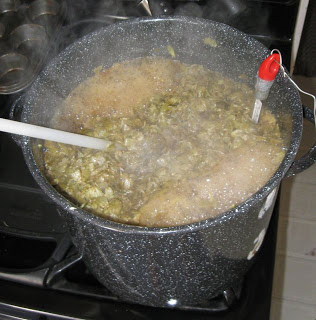Tonight’s game night started early because Marla and the kids were out of the house, so the three of us played two space games. Starcraft is a prime example of a good but typical Ameritrash title, and Race for the Galaxy is an excellent Eurogame.
Starcraft is a board game based on the excellent late 90’s video game. Last time we started this one (our first play), we set it up expecting it to take forever, and it did. Tonight we started over, and managed to finish in under 4 hours. We tend to think too much in our games, or maybe too little. The game lasted 4 turns, which was fairly short, but it would most likely have lasted only one more turn with the same winner (me) if we hadn’t drawn the “end of game” cards so quickly.
Starcraft has lots of satisfying shiny parts: two sets each of plastic Space Marines, Zergs (bugs) and Protoss (space elves? Humanoid aliens with advanced tech.) The general setup takes a long time, especially the first time around, and the bits are quite overwhelming. You need a huge table: we could only fit 4 of us on my 4’x6′ table in the attic.
The gameplay options tend to follow what was available in the video game: collect resources with your workers and use it to build workers, transports, combat units, and improvements for your buildings so you can build better troops. The mechanics change when translated to a board game, but the overall feel is what you’d expect, and it’s satisfying for those who have played the video game.
The board is tightly packed, with only two planets per player, and the combat odds tend to stack in favor of the attacker. This is very unlike most combat games, but fits the model of combat tactics proposed in the Ender’s Game trilogy (or so). The overall effect is to reward combat and prevent a stalemate due to “turtling.” Combat is resolved using selected cards from a hand of combat cards, so it’s generally not susceptible to giant failure due to bad die rolls.
The main complaint I might continue to have with future plays is the dreaded “Event Card Effect.” After a long game with lots of fun decisions, someone draws a random event card and the game ends with an upset victory. This is no fun for the one who should’ve won but didn’t, or for the one who won unexpectedly via one random card draw. You might as well just play War or Rock, Paper, Scissors, Lizard, Spock.
There have been many reasonable games ruined by a deck of overpowered event cards. Hmm, come to think of it, there’s another space game that fits this description: Smugglers of the Galaxy.
Overall, Starcraft is a relatively long game, but it’s not so complicated that it’s unapproachable. If you’re familiar with the video game, it will match your expectations faithfully enough to be satisfying. The effort put into playing the game is rewarded adequately, unlike many long, slow wargames which simply aren’t worth the work of learning the rules.
After Starcraft, we had so much time left over that we had time for two games of Race for the Galaxy. This is a really excellent card game which we’ve played many times, and enjoy every time (even when we’re losing).
Race for the Galaxy is a rethemed version of San Juan, which is a card game remake of Puerto Rico. In all of these games the basic mechanic is the same, and gameplay is very straightforward. Each round, players simultaneously and secretly choose one role or action. All of the players perform each selected action in a certain order, and the players who chose each action get a bonus for choosing that action. Then the next round begins.
In Race for the Galaxy the actions are Explore (draw cards), Develop (play development cards), Settle (play planet cards), Consume (sell goods from your planets), and Produce (produce goods on some planets). The development cards and planets give you bonuses or additional action possibilities in each action phase. The key to winning is finding a strategy which lets you combine the best effects of the cards you happen to draw.
This is an excellent game, and matches many of our preferences. It has very straightforward rules and gameplay, and only takes about 30 minutes to finish a game. It requires plenty of choice by all players, but it’s not prone to overthinking. There is no player downtime: almost all actions are performed simultaneously. There is very little direct player interaction: you can’t act offensively against another player or directly foil their plans, but successfully anticipating other players’ action choices can make or break your game. There are many different strategies which can lead to victory, which provides a different game each time you play due to different card draws.
The major downside is the game’s rulebook. It is very daunting and wordy, and not very easy to follow. It caused me to put down the game instead of playing it many times, before we finally found the time to sit down and read. For first time players, there are sample starting hands which can make the game a lot easier, since the first thing you do in the game is choose which 4 out of 6 cards you want to keep: an impossible task if you don’t know what the heck you’re looking at. Definitely keep the card and turn summaries handy, they’re very useful until you familiarize yourself with the rules.
I highly recommend Race for the Galaxy for almost anyone who enjoys euro games. It plays well (but differently) with only 2 players, and can handle up to 4 (or 5?).












